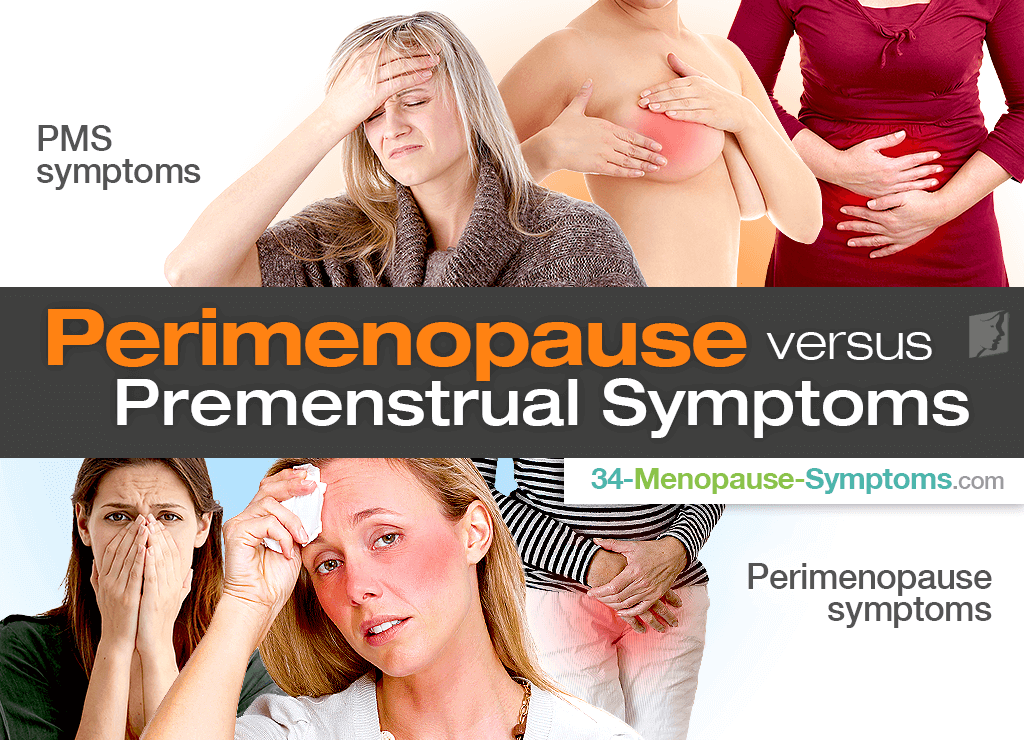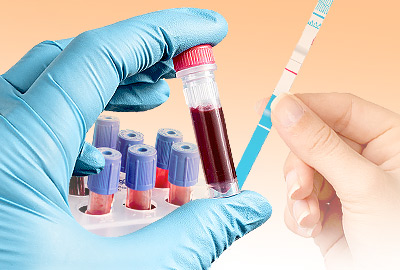When your body starts going through perimenopause, you may be reminded of another time in your life, PMS. Continue reading to find out more about common PMS and perimenopause symptoms as well as how to tell which ones you're experiencing to have a better grasp on your reproductive health.
PMS Symptoms
Around 85% of women report having experienced at least one symptom of PMS throughout their reproductive lives. It is said that five percent of women have symptoms so extreme as to be considered disabled.
Common PMS symptoms include, but are not limited to:
- Breast swelling and tenderness
- Irritability
- Headaches
- Bloating
- Water retention
- Changes in bowel habits
- Acne
- Food cravings
- Insomnia
- Fatigue
Perimenopause Symptoms
Perimenopause is the name of the transition period leading to menopause. Because ovarian hormone production is winding down, it is common for women to experience a plethora of symptoms caused by the drastic hormonal fluctuations, principally of estrogen and progesterone.
Some of the more common perimenopause symptoms include:
- Vaginal dryness
- Hot flashes
- Loss of libido
- Night sweats
- Irregular periods
- Mood swings
- Difficulty concentrating
- Anxiety
How Can I Tell if I Have Perimenopause Symptoms or PMS?
For starters, yes, it is possible to have PMS during perimenopause. PMS symptoms begin during the luteal phase of the menstrual cycle - second half after ovulation - and can last into menstruation. When reproductive functions are coming to a halt, symptoms can ensue at any time.
Also, many PMS and perimenopause symptoms are the same, which could lead a woman to being confused as to which she is experiencing.
As a rule of thumb, if your symptoms are coming around the same time each month, then you are most likely experiencing PMS. On the other hand, if you have irregular periods, you are in your 40s, and your symptoms do not coincide with when menstruation happens, you can consider them perimenopause.
There are a variety of perimenopause treatments available, all of which are aimed at fixing the underlying cause of hormonal imbalance. Many of the treatments can also apply for PMS symptoms.
While symptoms may be haunting you and causing you misery for days on end, you don't have to put up with them for long. Even if from PMS during perimenopause, relief is just a step away. Take action today for a brighter, chirpier tomorrow!
Sources
- Stanford Children's Health. (n.d.). Premenstrual Syndrome (PMS). Retrieved November 14, 2018, from https://www.stanfordchildrens.org/en/topic/default?id=premenstrual-syndrome-pms-85-P00581




